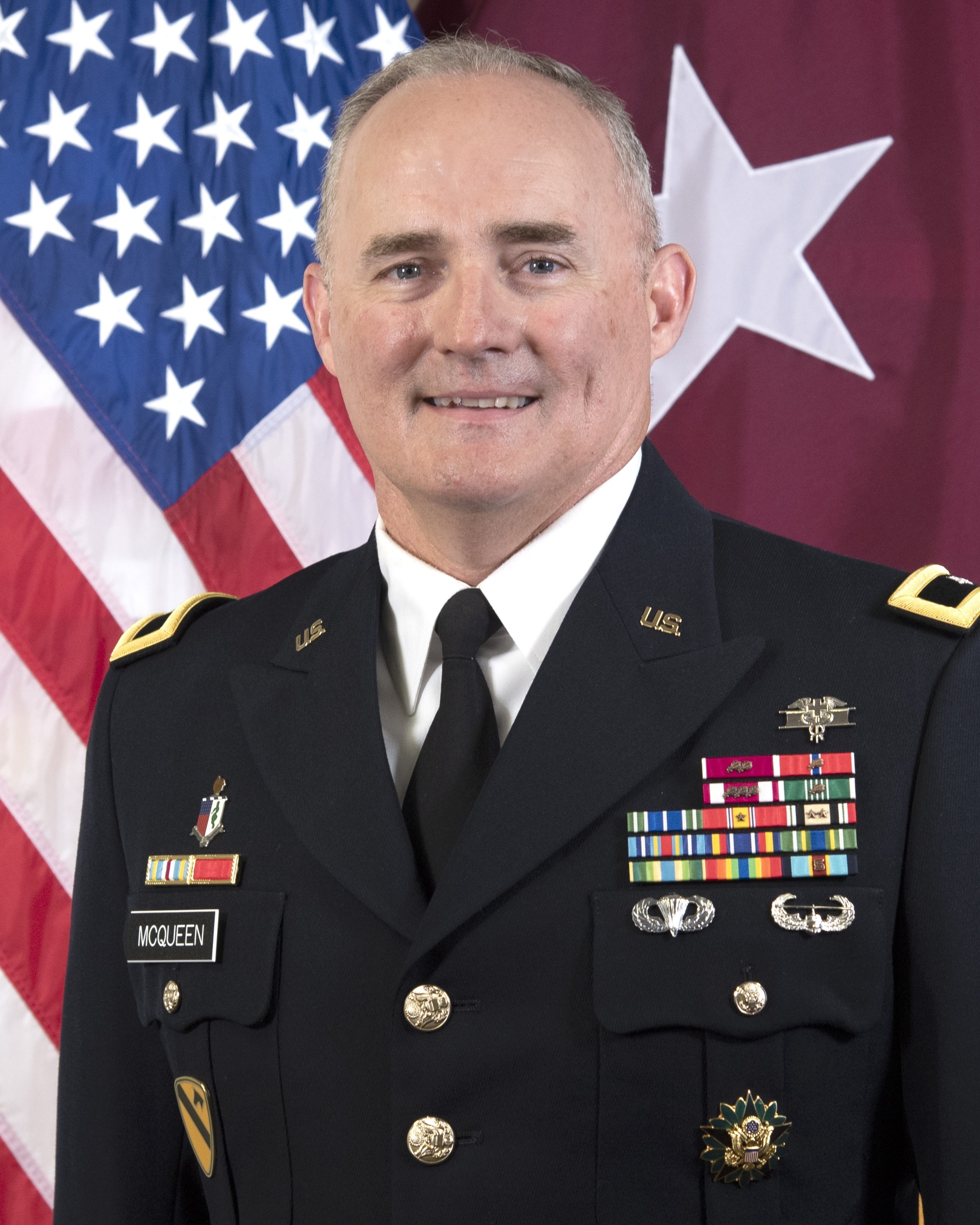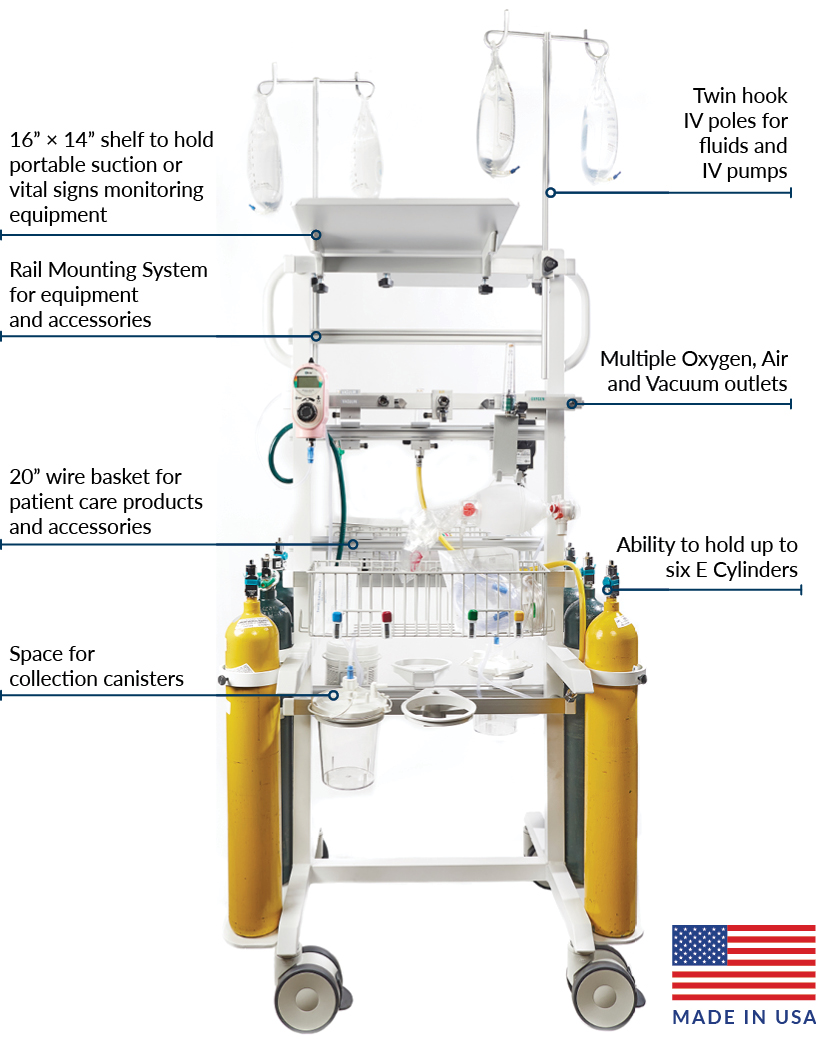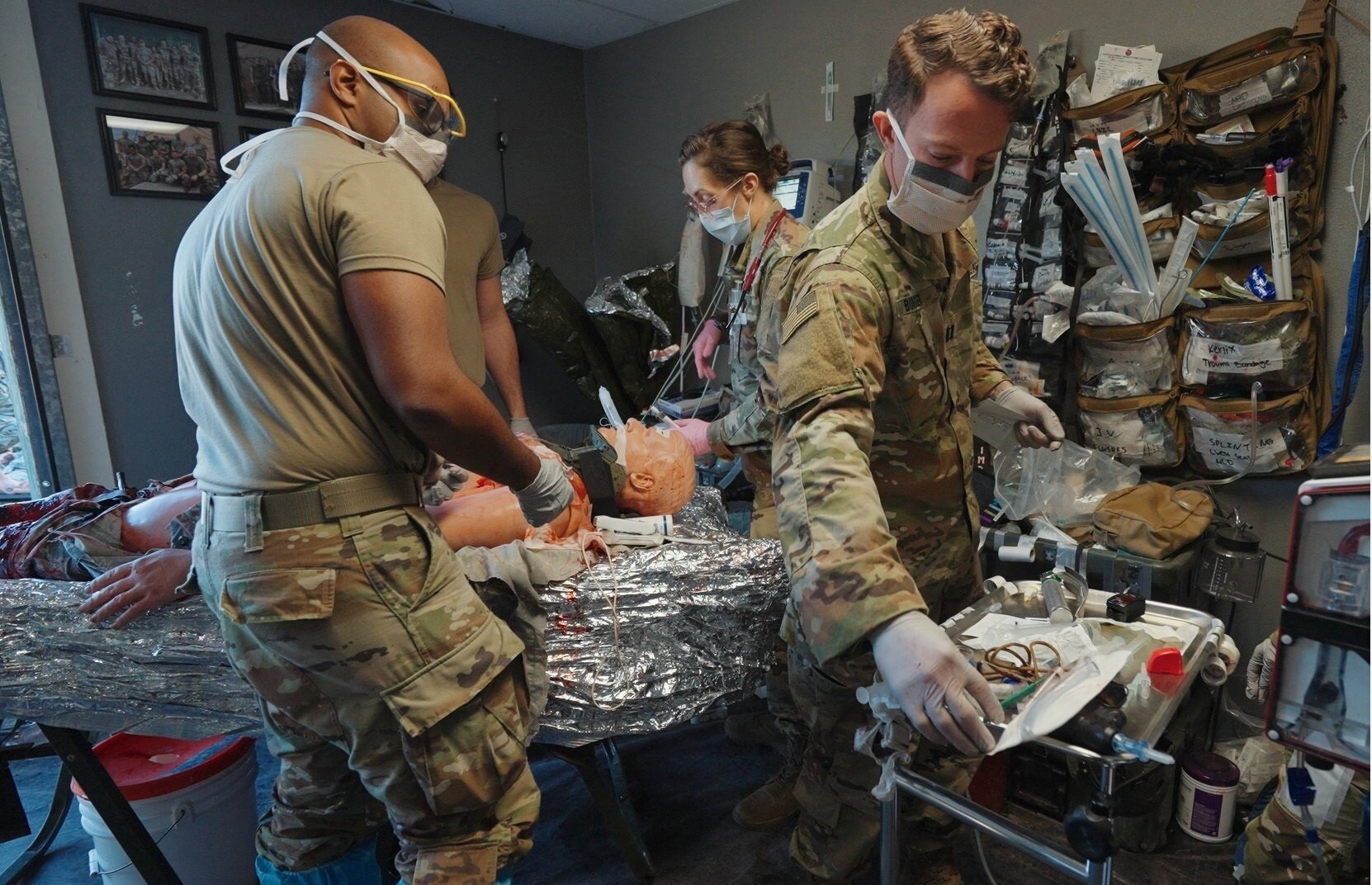
Identifying Innovative Solutions for Traumatic Brain Injury
The U.S. Army Medical Research and Development Command (USAMRDC) is working to identify innovative ways to diagnose and treat combat-related traumatic brain injury (TBI). This effort is critical, as nearly 414,000 Service Members sustained a TBI between 2000 and 2019, with over 80% of mild TBI cases resulting from exposure to high pressure shock waves caused by explosions.
 Researching ways to improve treatment of traumatic brain injury
Researching ways to improve treatment of traumatic brain injury
As Dr. James B. Phillips, manager of the Neurotrauma Portfolio at USAMRDC’s Combat Casualty Care Research Program, explained during a recent educational webinar, early and fast triage and diagnosis of TBI at or near the point of injury is one of the critical overarching needs that the program is currently working to address.
“If you read and see what’s going on in Ukraine, you can see what future battlefields could look like where you just can’t evacuate anybody when you want to,” said Phillips. “We need to initiate treatment earlier at the point of injury. Especially with trauma, the earlier you can intervene, the better off they’ll be.”
Understanding the complexities of traumatic brain injury
The goal of the Combat Casualty Care Research Program’s Neurotrauma Portfolio is to identify and close military-relevant gaps in diagnosing and treating combat-related TBI from the point of injury through hospitalization. These gaps include treatments for moderate to severe TBI that are less invasive than current methods; technologies that are highly portable, rugged, and require little or no refrigeration; the ability to not only detect cerebral hemorrhages but also to identify their locations, sizes, and changes; tools for monitoring intracranial pressure noninvasively; physiological markers of injury such as changes in blood oxygen and glucose levels; and objective assessments of a patient’s cognitive ability.
 Developing portable and rugged medical technology for the battlefield
Developing portable and rugged medical technology for the battlefield
To achieve this goal, the USAMRDC partnered with the Medical Technology Enterprise Consortium (MTEC), a nonprofit international consortium of over 600 academic institutions, small and large businesses, nonprofits, and other organizations in the biomedical technology sector. MTEC’s mission is to promote the development and delivery of new therapeutics, devices, biologics, diagnostics, clinical practice guidelines, digital health systems, and other innovations that improve the health of Service Members and civilians.
 Medical professionals operating in austere clinics require innovative solutions
Medical professionals operating in austere clinics require innovative solutions
Through this partnership, the USAMRDC hopes to find new and creative ways to solve challenging problems in diagnosing and treating combat-related TBI, and ultimately improve the health and well-being of Service Members and civilians.
 The importance of addressing traumatic brain injury on the battlefield
The importance of addressing traumatic brain injury on the battlefield













